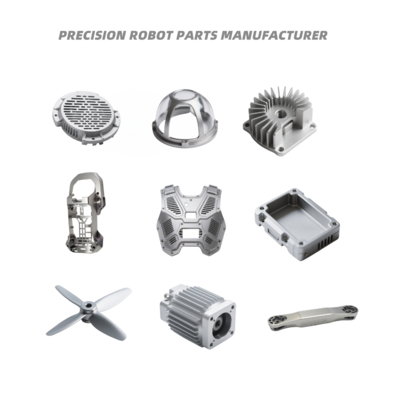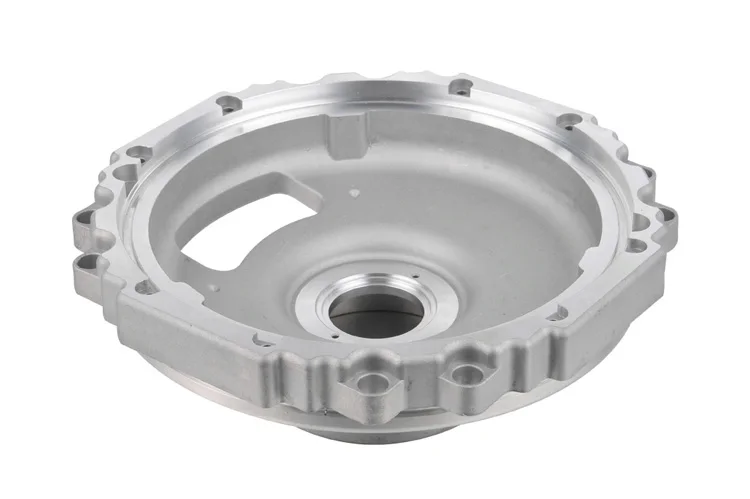The Influence of Innovative Factory Providers on Sustainable Production Practices
Cutting-edge foundry services play a crucial duty beforehand lasting manufacturing techniques. By incorporating recycling technologies and energy-efficient processes, these services significantly lower ecological impact. Factories can redeem valuable products, thus decreasing dependence on virgin resources. As automation and lean production principles obtain grip, production performance is optimized. Nonetheless, the complete level of these developments and their implications for the future of producing continue to be to be checked out.
The Duty of Advanced Recycling Technologies in Foundries
Advanced recycling modern technologies are changing the landscape of shops by enhancing product recovery and minimizing waste. These ingenious processes permit shops to redeem important steels and materials from scrap, lessening dependence on virgin sources. By incorporating sophisticated sorting, shredding, and melting methods, foundries can efficiently draw out functional materials from thrown out items, thus promoting a circular economy.
Moreover, these modern technologies support the production of high-quality alloys and parts, making sure that recycled products fulfill stringent market requirements (aluminum casting). As a result, foundries are not just improving their material efficiency but also decreasing the environmental effect related to conventional manufacturing techniques
This change towards advanced recycling not only bolsters economic feasibility for factories however likewise lines up with global sustainability goals. Ultimately, the incorporation of these modern technologies represents a significant advance in the pursuit for sustainable production techniques within the shop market.
Energy Effectiveness: Reducing Intake in Manufacturing Processes
Energy efficiency in making procedures is essential for lasting procedures. Techniques such as process optimization techniques, eco-friendly power combination, and waste warmth healing play necessary duties in minimizing energy usage. By focusing on these locations, makers can significantly reduce their ecological impact while boosting performance.
Refine Optimization Techniques
A significant variety of manufacturing centers are progressively taking on process optimization methods to improve power effectiveness and minimize intake. These strategies include refining and evaluating manufacturing workflows, recognizing bottlenecks, and applying automation to improve operations. By leveraging information analytics, producers can keep an eye on energy use in real-time, enabling aggressive modifications to decrease waste. Strategies such as Lean Production and 6 Sigma focus on maximizing and eliminating ineffectiveness source allocation. Furthermore, progressed modern technologies like Internet of Points (IoT) sensing units give insights right into equipment efficiency, assisting in anticipating maintenance that protects against energy loss. Overall, these procedure optimization methods not only add to minimized energy intake however also cultivate a society of constant renovation within producing environments, straightening operational exercise with sustainability goals.
Renewable Power Combination
Many production facilities are progressively integrating sustainable energy sources to enhance general energy efficiency and decrease reliance on traditional power grids. This change includes the adoption of solar, wind, and biomass power, which can significantly decrease and decrease functional expenses carbon footprints. By utilizing these lasting power resources, makers not only reduce their environmental impact yet also boost energy durability. In addition, integrating renewable power systems usually includes innovative innovations such as power storage and clever grid options, which enhance power use and help with real-time monitoring. This integration supports suppliers in accomplishing regulative compliance and conference sustainability objectives while promoting development in manufacturing procedures. Ultimately, renewable resource assimilation stands for an essential shift in the direction of even more sustainable production practices and lasting practicality.
Waste Warmth Recovery
Incorporating sustainable power sources sets the stage for further developments in power efficiency, specifically via the application of waste warmth healing systems. These systems record excess thermal energy created during making procedures, which would or else be shed to the atmosphere. By repurposing this heat, factories can considerably minimize their power consumption, lower functional prices, and reduce their carbon impact. The recovered heat can be used for different applications, such as heating, power generation, or pre-heating raw products. Because of this, waste heat recovery not only improves power efficiency yet additionally adds to a sustainable production design. Ingenious foundry solutions that prioritize this modern technology are leading the way for an ecologically responsible commercial landscape, lining up success with ecological stewardship.
Making Use Of Eco-Friendly Materials in Foundry Operations
As the need for sustainable production practices grows, shops are increasingly transforming to environmentally friendly materials to improve their procedures. By integrating sustainable choices, such as bio-based binders and recycled metals, foundries can considerably reduce their environmental footprint. These materials commonly call for much less power for handling and can lessen unsafe emissions during manufacturing.
The fostering of green products not only aligns with see governing criteria however also fulfills customer preferences for greener products. Shops are checking out cutting-edge choices, such as making use of organic additives that enhance mold and mildew top quality while remaining non-toxic.
The shift to lasting materials fosters a round economic climate by advertising source reuse and minimizing waste. Furthermore, this change can improve the total efficiency of foundry operations, as eco-friendly materials commonly show superior buildings, leading to boosted product performance - Aluminum Casting Company. Ultimately, the application of environmentally friendly products represents an essential step toward lasting manufacturing in the factory industry

Technologies in Waste Management and Reduction Techniques
The change in the direction of eco-friendly materials in factory operations leads the method for developments in waste administration and decrease methods. Ingenious factory solutions are significantly embracing methods that decrease waste generation and advertise recycling. Techniques such as closed-loop systems permit the reuse of materials, considerably decreasing the volume of waste generated during making procedures. Furthermore, improvements in purification and splitting up modern technologies enable the efficient recovery of valuable byproducts, which can be rehabilitated right into the manufacturing cycle.
The application of real-time tracking systems offers data-driven insights into waste generation patterns, facilitating educated decision-making to optimize source usage. Factories are likewise exploring biowaste solutions, transforming natural waste right into energy or functional products, even more promoting sustainability. These advancements not only contribute to a round economic climate however also boost the total environmental performance of factory procedures, emphasizing the market's dedication to lowering its ecological footprint.
The Effect of Automation on Lasting Manufacturing
While lots of markets aim for sustainability, automation becomes a vital consider improving lasting production practices within shops. By integrating automated systems, foundries can accomplish greater efficiency, reduce waste, and lower energy consumption. Automated processes permit precise control over production criteria, reducing issues and remodel, which in turn conserves sources.
Automation promotes the tracking of environmental effects, making it possible for real-time changes that straighten with more info here sustainability goals. Advanced robotics and expert system can enhance product use, bring about substantial reductions in scrap and exhausts
Additionally, automated technologies advertise safer workplace by dealing with hazardous jobs, consequently improving employee well-being while ensuring conformity with ecological guidelines. Generally, the adoption of automation within factories not only enhances operations however also plays a crucial function in progressing lasting production methods, contributing to an extra accountable commercial landscape.
Situation Researches: Effective Execution of Lasting Factory Practices
Successful execution of sustainable methods in foundries can be shown via numerous case studies that highlight measurable results and innovative methods. One significant instance is a mid-sized factory that embraced a closed-loop water reusing system, minimizing water intake by 40% and reducing wastewater generation. Furthermore, this center changed to utilizing green mold and mildew products, which not just better item top quality yet also improved employee safety and security.
Another significant case involved a large factory integrating sustainable energy sources, such as photovoltaic panels, which offset 30% of its energy requires. This campaign not just reduced operational costs however also added to a substantial reduction in carbon emissions.
Finally, a shop that executed lean manufacturing techniques reported a 25% rise in efficiency, leading to less worldly waste and maximized production procedures. These situations collectively emphasize the substantial benefits and sustainability improvements possible through innovative shop techniques.
Frequently Asked Questions
Exactly How Do Ingenious Factory Providers Contribute to Total Sustainability Objectives?
Innovative factory services enhance overall sustainability goals by optimizing source usage, minimizing waste, and enhancing power efficiency. These developments add to lower carbon footprints and promote ecologically liable practices within the manufacturing field, supporting wider sustainability initiatives.
What Are the Economic Advantages of Embracing Sustainable Factory Practices?
Adopting lasting factory methods can minimize operational expenses, boost resource effectiveness, and enhance competition. Furthermore, these practices can draw in eco-conscious consumers and capitalists, ultimately leading to boosted profitability and long-lasting financial stability for services.
Exactly How Can Little Foundries Carry Out Sustainable Technologies Successfully?
Small foundries can carry out sustainable innovations effectively by taking on energy-efficient technologies, maximizing resource use, educating team on sustainable methods, working together with vendors for environmentally friendly materials, and participating in continual renovation procedures to lower waste and discharges.
What Certifications Exist for Sustainable Foundry Operations?

Exactly How Do Customer Preferences Impact Sustainable Production in Foundries?
Customer preferences considerably influence lasting production in shops by driving demand for green products. As customers prioritize sustainability, foundries adjust their methods, incorporating greener products and innovations to fulfill market expectations and improve their competitive advantage.
By repurposing this warm, shops can significantly minimize their power usage, lower operational costs, and decrease their carbon footprint. Shops are find out likewise discovering biowaste solutions, transforming organic waste right into power or useful materials, further promoting sustainability. By incorporating automated systems, shops can achieve greater performance, lower waste, and reduced energy usage. An additional significant situation included a big factory integrating renewable energy resources, such as solar panels, which offset 30% of its energy needs. Innovative factory solutions enhance total sustainability goals by enhancing resource use, lowering waste, and boosting power efficiency.